
Accordions are a family of box-shaped musical instruments of the bellows-driven free-reed aerophone type, colloquially referred to as a squeezebox. A person who plays the accordion is an accordionist. The concertina and bandoneón are related. The harmonium and American reed organ are in the same family, but are typically larger than an accordion and sit on a surface or the floor.

Carlos Alberto Vives Restrepo is a Colombian singer, songwriter and actor. His music spans multiple genres though it is generally categorized as a fusion of pop vocals and traditional musical styles of Colombia, including vallenato, cumbia, porro and champeta.

The music of Colombia is an expression of Colombian culture, music genres, both traditional and modern, according with the features of each geographic region, although it is not uncommon to find different musical styles in the same region. The diversity in musical expressions found in Colombia can be seen as the result of a mixture of Amerindian, African, and European influences, as well as more modern American.

Vallenato is a popular folk music genre from Colombia. It primarily comes from its Caribbean region. Vallenato literally means "born in the valley". The valley influencing this name is located between the Sierra Nevada de Santa Marta and the Serranía de Perijá in north-east Colombia. The name also applies to the people from the city where this genre originated: Valledupar. In 2006, vallenato and cumbia were added as a category in the Latin Grammy Awards. Colombia’s traditional vallenato music is Intangible Cultural Heritage in Need of Urgent Safeguarding, according to UNESCO.

A melodeon or diatonic button accordion is a member of the free-reed aerophone family of musical instruments. It is a type of button accordion on which the melody-side keyboard contains one or more rows of buttons, with each row producing the notes of a single diatonic scale. The buttons on the bass-side keyboard are most commonly arranged in pairs, with one button of a pair sounding the fundamental of a chord and the other the corresponding major triad.

Mexican cumbia is a type of cumbia, a music which originated in Colombia but was reinvented and adapted in Mexico.
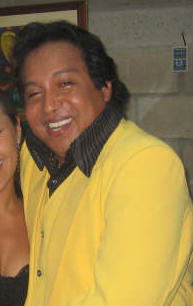
Diomedes Díaz Maestre was a Colombian vallenato singer, songwriter, and composer. His nickname, "El Cacique de la Junta", was given to him by another vallenato singer, Rafael Orozco Maestre, in honor to Díaz's birthplace.
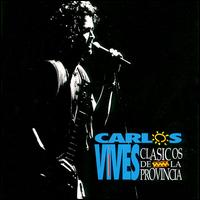
Clásicos de la Provincia is the sixth album by Colombian singer/composer Carlos Vives. Released in Colombia in late 1993, and internationally on February 22, 1994, the album is a collection of Colombian vallenato standards. The album made Vives a superstar in Colombia and was his breakthrough in the Vallenato genre.
La gota fría is a 1938 Colombian Vallenato song, composed by Emiliano Zuleta. It has been proposed as an unofficial Colombian anthem. The song emerged from a musical controversy with Lorenzo Morales. Many artists had covered the song include Carlos Vives, Grupo Niche, Ray Conniff, Gran Pachanga, Los Joao, La Sonora Dinamita, Julio Iglesias, Tulio Zuloaga, and Alfredo Gutiérrez. The title of the song alludes metaphorically to the weather phenomenon, in which a cold front clashes with warm air, producing heavy storms and torrential rains; the cold drop is occasionally apparent near the Sierra Nevada de Santa Marta.

Rafael José Orozco Maestre was a Colombian singer of vallenato music. He was one of the major representatives of Colombian popular folk music and was lead singer and co-founder, alongside fellow accordionist Israel Romero, of the vallenato group Binomio de Oro de América, which was very popular in Colombia, Mexico and Venezuela.
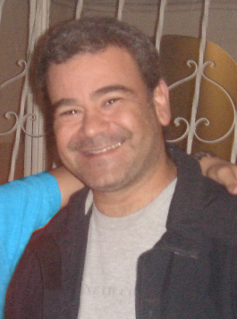
Iván Francisco Villazón Aponte, is one of the most renowned vallenato singers in Colombia. His career as a singer began in 1984 after dropping out of college where he was pursuing a degree in law.

Aniceto Molina Aguirre was a Colombian cumbia singer-songwriter and accordionist who began playing the instrument at the age of 12. His career lasted for more than four decades. He was popular in Latin American countries, especially El Salvador.

The Wind Journeys is a 2009 Colombian-German-Argentine-Dutch drama film written and directed by Ciro Guerra. It was filmed in 80 locations in Northern Colombia and is spoken in Spanish, Palenquero, Wayuunaiki, and Ikun. It was selected as the Colombian entry for the Best Foreign Language Film at the 82nd Academy Awards, but was not nominated.

Lágrimas Cálidas is the debut studio album by Colombian recording artist Fanny Lu, released on January 1, 2005. The record contains ten tracks, most of which were composed by Jose Gaviria, and produced with Andres Munera. Musically, the album experiments with tropipop, which is composed of the genres of vallenato, merengue, and pop music. Recording for the album took place in 2004 in three cities: Miami, Bogota and Medellin. An international version of the album, containing two remixes, was released exclusively in United States, Spain and Colombia.
Tropipop is a music genre that developed in Colombia in the late 1990s and early 2000s. It is a blend of traditional musical forms of the Caribbean Region of Colombia, mainly vallenato, with foreign Latin genres such as salsa and merengue, and pop and pop rock. The term "tropipop" comes from the synthesis of the words "tropical" and "pop music" describing the genre's mix of Latin tropical roots with American popular music.
Lisandro Meza is a Colombian singer and accordionist. Since he started playing the accordion in 1959, Lisandro has been described as the “King of Cumbia,” “El Macho de America” and the “Master of Vallenato Sabanero.” Meza was once part of the group, Los Corraleros de Majagual in 1962, which was a successful band in both Colombia and Venezuela.
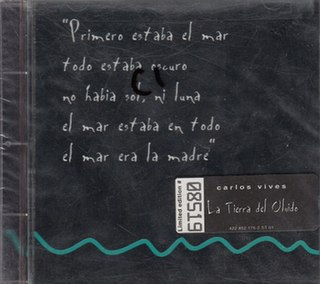
"La Tierra del Olvido" is a song by Colombian singer Carlos Vives from his seventh studio album of the same name (1995). The song was written by Iván Benavides and Vives, who handled production alongside Richard Blair. It was released as the lead single from the album in 1995. The song is a neo-vallenato number that utilizes the folk guitar and accordion, on which Vives longs for his homeland. The song received positive reactions from three music critics, being found as one of the album's catchiest tunes by them. It was a recipient at the ASCAP Latin Awards in 1996.
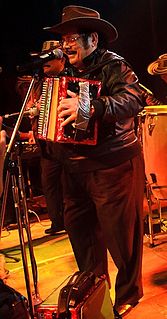
Aníbal Velásquez Hurtado is a Colombian singer, composer and musician, recognized for playing the accordion. He is also known by his nicknames "El Mago" and "El Rey de la Guaracha".

"Agua Dulce, Agua Salá" is a song from Spanish singer Julio Iglesias's studio album La Carretera (1995). The song was written by Estéfano, Donato Poveda, and Hal Batt and produced by Ramón Arcusa. It was released as the lead single from the album in 1995. A rumba flamenca, the song deals with the theme of life. The song received positive reactions from music critics, mostly being found catchy by them. It was a recipient of the ASCAP Latin Award in 1996. Commercially, the song peaked at number three on the Hot Latin Songs chart and number one on the Latin Pop Airplay chart in the United States. A music video for the song was filmed in Spain and features Fabiola Martinez. Iglesias also recorded it in Portuguese as "Água Doce, Água do Mar" for his studio album Ao Meu Brasil (2000).















